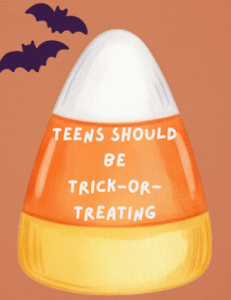OPINION: We Need to Stop Buying Chocolate (For Now)
Recently, many of the large chocolate companies have come under fire for purchasing cocoa powder from areas that use child labor.
Feb 22, 2022
If you look up on google “M&M’s being canceled,” chances are the top articles that come up are going to be about the Mars brand giving the Green M&M a new look. In an effort to become more inclusive, the Green M&M has traded her classic white heeled boots for a pair of white sneakers. However, with further research one could say that Mars, the company that makes M&M’s, attempt at being “woke” is just a cover up for something much bigger at play.
Major chocolate companies such as Nestlé, Cargill, Barry Callebaut, Mars, Olam, Hershey and Mondelēz have come under hot water after being accused of using child slaves under a class action lawsuit. Despite having knowledge that the Ivory Coast uses child slavery, they continue to purchase cocoa powder, a top ingredient for chocolate, from these areas. According to the Guardian, “[The group has] accuse[d] the corporations of aiding and abetting the illegal enslavement of ‘thousands’ of children on cocoa farms in their supply chains.”
All eight plaintiffs allege that they were tricked in being recruited to work while in Mali, and were then trafficked to work on cocoa farms in the Ivory Coast by professional traffickers known as “locateur.” While there, they spent several years working under extremely harsh conditions with no pay, travel documentation or a way back to where they were originally from.
Many of the required jobs for the child slaves were very dangerous. The Plaintiffs were required to perform dangerous work such as using sharp machetes, apply pesticides and herbicides with their bare hands, carry large loads and clear brush until their eventual escape. According to the International Rights Activists, “All of this dangerous work is classified as the Worst Forms of Child Labor by ILO Convention No. 182 and is illegal in every country in the world for children to perform. All of the children were harvesting cocoa for one of the defendant multinational cocoa companies, and they worked as slaves for years until they were finally able to escape.”
In 2001, the U.S. Congress pushed the major chocolate companies to end their reliance on child labor in order to help eradicate the use of child slaves. The goal was to have transitioned into a free child labor future in four years; however, the companies made very little progress during these four years and have yet to fulfill promises made.
One way that chocolate companies have tried to end the use of child slave labor was to start a certification process at the cocoa bean farms that they buy from underneath the supervision of third-party companies such as Fairtrade and Rainforest Alliance. However, while the effort is there, it hasn’t proven to be the most effective since the third-party inspectors are only required to visit less than 10% of cocoa farms.
Another challenge that people face when trying to end child labor is poverty. For the most part, individuals who live along the Ivory Coast do not make much money, as the typical farmer makes an average income of $1,900. According to the Washington Post, “About 60 percent of the country’s rural population lacks access to electricity, and, according to UNESCO, the literacy rate of the Ivory Coast reaches about 44 percent.”
So while the majority of the public is tied up in obsessing over the shoes that a green cartoon piece of chocolate is wearing, there are around 2.1 million children being mistreated in Ivory Coast alone. The use of slave labor is far from a new concept, but it should be one we leave in the past. The chocolate industry is only one in thousands that use cheap labor in order to keep up with the ever changing market. The beginning of the end of these injustices starts with us.
As long as we the consumers continue to show support for companies that have proven to mistreat our fellow human beings, people will continue to be exploited for cheap labor.
https://www.pbs.org/newshour/show/a-dutch-chocolate-companys-fight-to-end-illegal-child-labor
https://foodispower.org/human-labor-slavery/slavery-chocolate/
Opinion | I don’t care about the de-sexification of M&Ms, let’s talk about child labor
https://www.internationalrightsadvocates.org/







